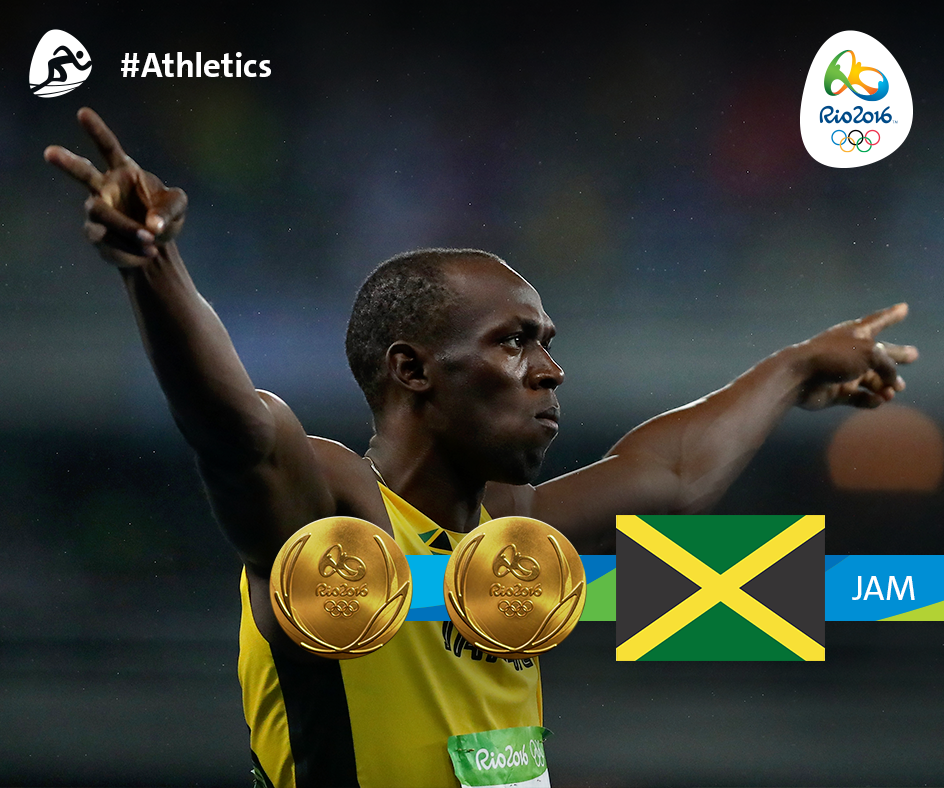
The Rio 2016 Olympics will be remembered for many things — Katie Ledecky’s dominating performance in the 800-meter freestyle, Simone Biles’s flawless gymnastic routines, Abbey D'Agostino’s and Nikki Hamblin’s sportsmanship during the 5000-meter qualifying run, and the list goes on. However, the moments that will be forever etched on everyone’s minds will be the events that featured two of the world’s greatest athletes — Jamaican sprinter Usain Bolt and American swimmer Michael Phelps — who both declared their retirement following the Rio Games.
Usain Bolt
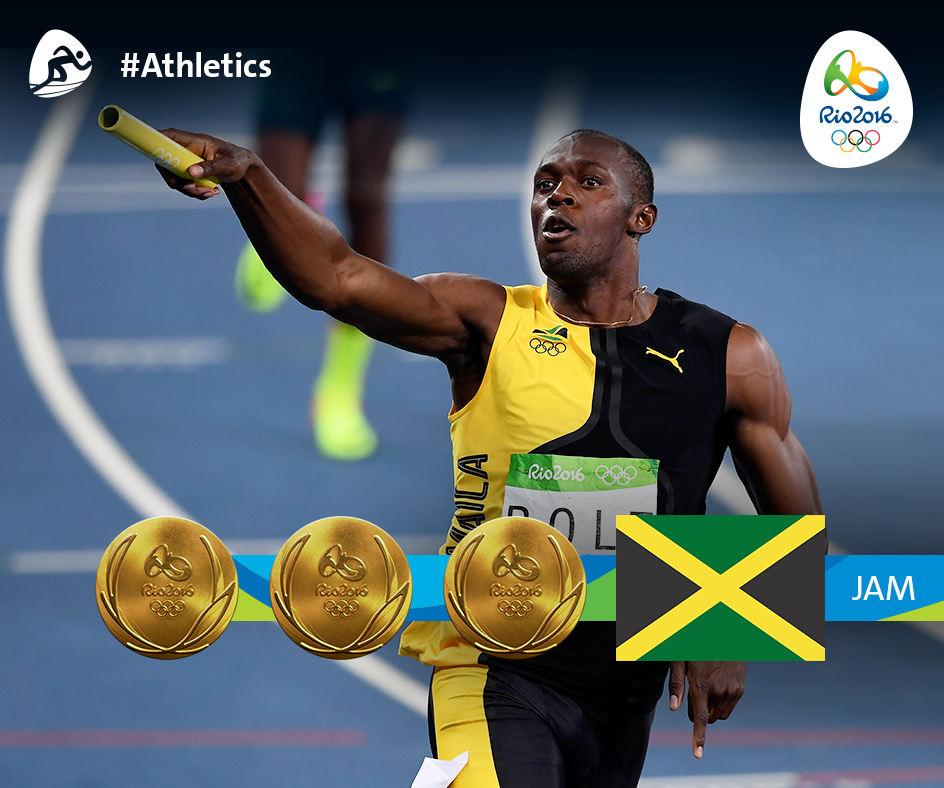
Before coming to Rio de Janeiro, the 31-year-old Bolt promised the world that history would be made at his final Olympic Games. He did not disappoint! While the “world’s fastest man” did not break his previous records, Bolt did complete the 100-meter and 200-meter sprints in an impressive 9.81s and 19.78s respectively, earning his third consecutive gold medals in both events. The sprinter’s final race, the 4x100 meter relay, appeared to be a close one with Japan until Bolt, who was running the anchor leg, got handed the baton. Living up to his well-deserved nickname, he took off like “lightning”, helping his team win their third consecutive gold medal in this relay. The victory perfectly capped Bolt’s illustrious and unmatched Olympic career.
While the sprinter’s inhuman speed that has confounded even scientists, is fascinating to observe, his off-track performance is even more so. Bolt’s famous “To Di World” pose that entails bending one elbow and straightening the other at an angle toward the skies, has been mimicked by everyone, from US President Barack Obama to Britain’s Prince Harry. There have even been baby contests where parents position their infant’s limbs to imitate the move and ask Bolt to decide the winner.
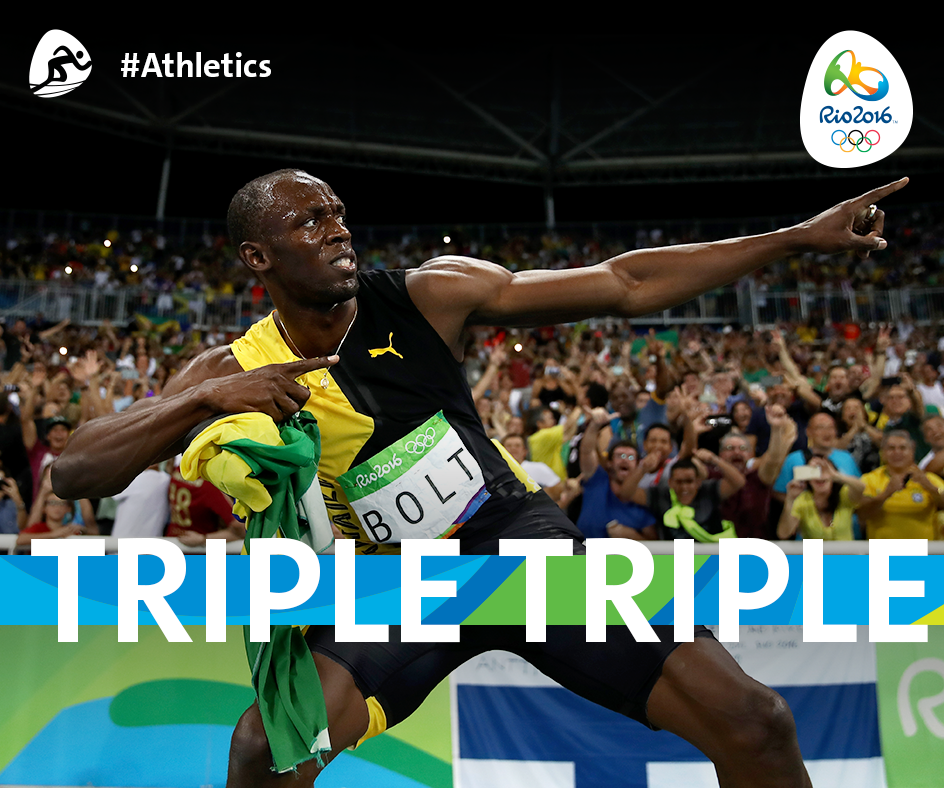
The charismatic runner says that he does this fun pose because “the crowds love energy” and “like to be part of the competition, not just watch it.” Bolt hopes that younger athletes understand that and keep his energetic legacy going.
Michael Phelps
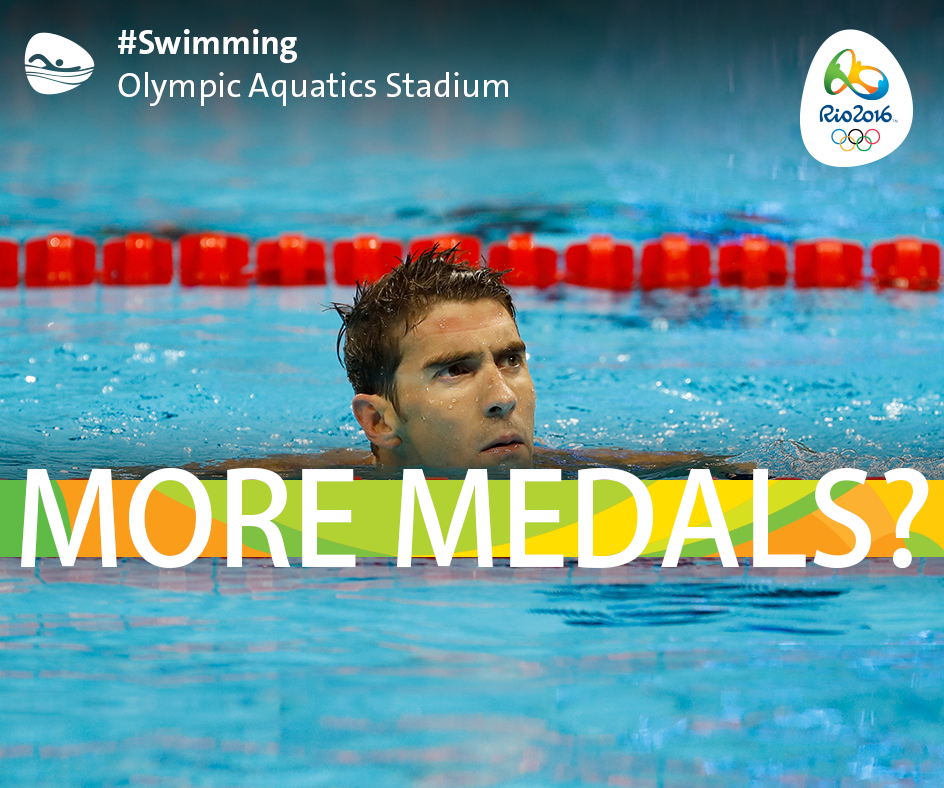
Michael Phelps was just 15-years old when he competed in what would become his signature event – the 200m butterfly — at the 2000 Sydney Olympics. Though his fifth place finish was a significant achievement, Phelps later said, “I wanted more. I was within half a second of medaling – it was literally, if I would have taken it out a little bit faster, maybe I would have had a chance.”
At the 2004 Athens Games, Phelps did not just swim faster in the 200m butterfly, but in seven other events as well. His total medal haul included six golds (100m and 200m butterfly, 200m and 400m individual medleys, and the 4x100m and 4x200m freestyle relays) as well as two bronze medals (200m freestyle and the 4x100m freestyle relay). His tally of six gold medals was just one less than the seven won by US swimmer Mike Spitz at the 1972 Munich Games. But Phelps was just getting started!
At the 2008 Beijing Games Phelps became the first athlete in Olympic history to take home gold medals in all his events – eight in total! What was even more impressive was that while doing so, he set seven new world records and one new Olympic record!
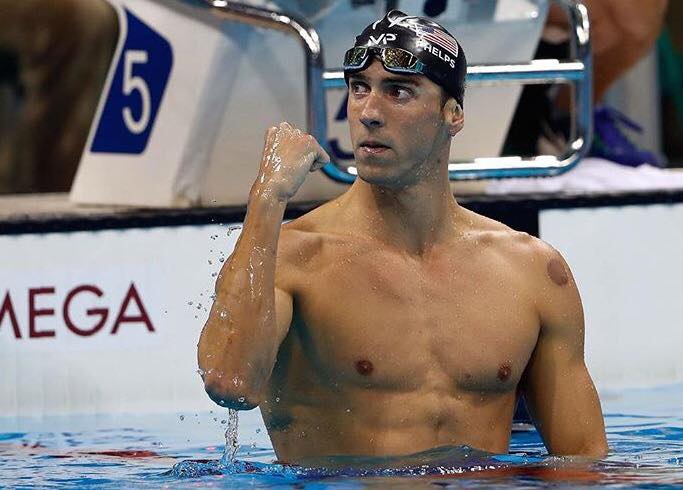
At his fourth Olympic appearance in London 2012, Phelps made history once more! He became the first male swimmer to win the 100m butterfly and 200m individual medley at three consecutive Games. He also took home the gold in the 4x200m freestyle relay and the 4x100m medley. Additionally, the swimmer won silver in the 4x100m freestyle relay and the 200m butterfly. Though placing second in his signature race was disappointing, with 22 Olympic medals, 18 of them gold, “The world’s most decorated athlete,” was ready to call it a day. To everyone’s dismay, the swimmer announced that he would not be coming back for the 2016 Rio Olympics.
But thankfully, Phelps changed his mind and began training for the Games in 2014. Though he looked strong during the tryouts, experts were skeptical if the swimmer could replicate his magic at the “advanced “age of 31. But their doubts were unfounded. Last week, under the watchful, albeit sleepy, eyes of his 3-month-old son Boomer, Phelps proved that he still had what it takes to be a champion.
The amazing swimmer once again medaled in all his events, adding five golds and one silver to his already extensive collection. Though thrilled at all the wins, the Phelps’s biggest joy was reclaiming the gold in his signature 200m butterfly. What made the swimmer’s redemption even sweeter was that Chad le Clos, the South African swimmer that “stole” the title from him in 2012 by out-touching him at the wall, came in fourth.
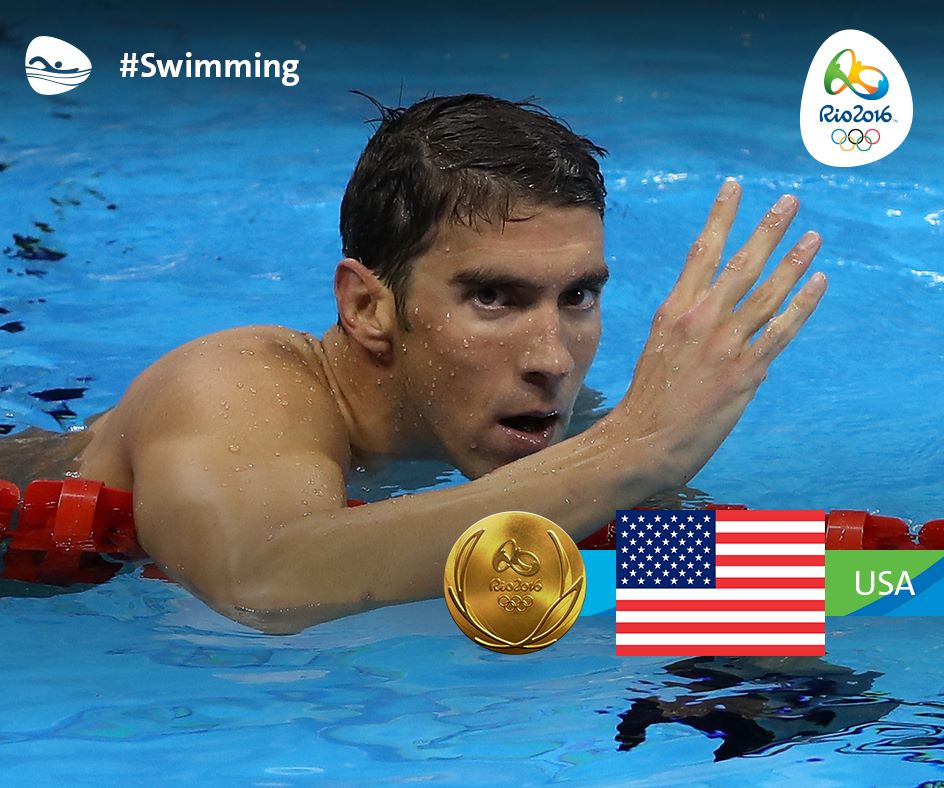
Of course, no Olympics would be complete without Phelps breaking a record or two. At the Rio Games, the decorated athlete became the first person to win the fourth consecutive Olympic gold in the 200-meter individual medley. He is now also the second-oldest swimmer to win gold in an individual race. While some of the records may be broken over time, Phelps’s overall haul of 28 medals, 23 of which are gold, will be hard to surpass. Prior to Phelps, the largest number of medals won by an Olympic athlete was 9!
As of now, both Bolt and Phelps are adamant about not returning to the Games. However, fans are sure hoping that the world’s “fastest man” and “most decorated athlete” will change their minds and showcase their prowess one more time at the 2020 Tokyo Olympics.
Resources: Time.com, latimes.com, cnn.com, wikipedia.org